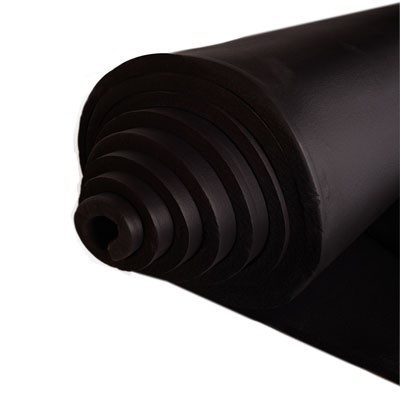Thermal Insulator
Thermal insulators are used to reduce the energy loss of the heating and cooling systems in cold and hot seasons. In the following, the information, application, how to check, and the best price of all types of building thermal insulators are provided.
Thermal Insulator Expert Buying Guide and Price List
In general, various types of insulators are used in heating and cooling systems to reduce heat loss, and energy consumption, prevent moisture infiltration, and even block sound transmission on building surfaces, pipes, tanks, and ducts.
In addition to the heating and cooling systems, thermal insulators are widely used in various industries such as petrochemical, oil, chemical, automotive, shipbuilding, aircraft, power plant, and pharmaceutical industries.
The evolution of sound and thermal insulators has taken a long path, including the transition period from mineral insulations such as glass wool and stone wool.
It has led to a new generation of insulations known as polymer insulators, as they have many advantages, including ease of installation, flexibility, and lightweightness.

- According to Section 14 of the National Building Regulations regarding the use of insulation materials in heating and cooling systems, the following points must be strictly adhered to:
A) In the piping of mechanical systems in buildings, pipes must be insulated according to the relevant technical requirements.
B) The material of the insulation and its moisture-proof covering must be suitable for the operating temperature of the piping system and the cold and hot fluids flowing through the pipes, as well as for the conditions at the installation site (in terms of humidity levels and the possibility of condensation of saturated water vapor present in the air on the insulated surfaces). Moreover, both the pipe insulation and its covering must be made of fire-resistant materials.
The flame spread index of the insulation must not exceed 25, and the smoke developed index must not exceed 50 according to the ANSI, ASTM E84, UL 723, or DIN 4102-131 standards.
- For piping in each area of the building, the insulation and its covering must be made of materials that comply with the regulations regarding fire protection for that specific area of the building.
- The use of combustible materials as insulation, insulation covers, and auxiliary materials like adhesives and tape in insulation is not permitted.
- Sections of the pipe running through fire-resistant walls in building floors must not have insulation or insulation covers.
- Insulation Thickness
Table "A" shows the minimum pipe insulation thicknesses for different piping systems.
(A) If the thermal insulation requirements of the pipe in this section differ from those in Section 19, the stricter requirements must be followed.
Table "A": Minimum pipe insulation thickness in millimeters
| System | Type | Operating Temperature Range (°C) |
Max Operating Pressure (Bar) |
Nominal Pipe Diameter (mm) | |||||
|---|---|---|---|---|---|---|---|---|---|
| Branch up to 50 | 25 and below | 32 to 50 | 65 to 100 | 125 to 150 | 200 and above | ||||
| Heating systems with hot water | Low temperature | Up to 120 | 11 | 25 | 38 | 38 | 38 | 38 | 75 |
| Medium temperature | 121 to 175 | 10.3 | 25 | 38 | 38 | 50 | 65 | 75 | |
| High temperature | 176 to 230 | 21 | 25 | 38 | 38 | 50 | 65 | 75 | |
| Heating systems with steam | Low pressure | Up to 120 | 1 | 25 | 38 | 38 | 38 | 38 | 75 |
| High pressure | Above 120 | 8.5 | 25 | 38 | 38 | 50 | 65 | 75 | |
| Cooling systems with chilled water | — | 4.4 to 12.8 | 8.5 | 13 | 13 | 20 | 25 | 25 | 25 |
The values in the table are set for an insulation thermal conductivity of 0.034 W·m·K (Btu·in·h·°F) and an ambient temperature of 24°C (75°F).
- For branch pipes with a diameter of up to 50 millimeters (2 inches), the insulation thickness is specified for the case where the branch length does not exceed 3.6 meters (12 feet).
- In insulating the pipes of refrigeration systems, the requirements regarding water vapor condensation in the air should be considered, as stated in section "B".
B) The insulation thickness values provided in Table "A" are determined without considering the possibility of condensation of water vapor on the surfaces of the pipes and insulation. If condensation of water vapor is expected on the outer surfaces of the pipes or on the insulation, the insulation thickness in each case must be calculated and approved.
C) If the thermal conductivity of the insulation differs from 0.034 W/m·K and the ambient temperature is different from 24°C (75°F), for which the table values are set, the thickness values read from Table "A" must be adjusted using approved engineering methods.
D) If the pipe is exposed to freezing temperatures, to prevent the freezing of the fluid inside the pipe, the insulation thickness should be adjusted using approved engineering methods or an alternative method, other than insulation, should be used.
It is important to note that various thermal and cooling insulations, such as fiberglass, plastic foam, white foam pipe insulations, and black elastomeric foams, have a thermal conductivity coefficient between 0.03 and 0.045, and practically, there is no significant difference between them.
For the insulation of pipes and ducts that carry cold fluids with temperatures below the dew point of water vapor in the air, in addition to heat transfer, the external surface temperature of the insulation must also be calculated to select the appropriate thickness.
Additionally, attention must be given to the resistance of the insulation to water vapor penetration into the insulation material, particularly for pipes or any insulated surrounding surfaces. The penetration of water vapor into the insulation not only destroys its insulating properties but also causes condensation or moisture formation inside the insulation, on the pipes and ducts, leading to their deterioration.
For this reason, for example, when insulating the pipes of air conditioners, in addition to thermal resistance, the resistance to the penetration of ambient water vapor must also be considered. If the resistance factor of fiberglass or rock wool to water vapor penetration is 1, the moisture resistance factor of elastomeric insulations is about 7,000.
Review, Selection, and Pricing of HVAC Equipment
How to Choose Thermal Insulators?
When choosing and ordering insulators, the following should be taken into account:
- Temperature difference between two insulating surfaces
- Heat transfer range of the insulator
- Insulator material and its coating
Choosing the right thermal insulator depends on the ambient temperature, safety, environmental conditions, and price.
The thickness of thermal insulation should be chosen considering its economic value, that is, to prevent energy wastage with the minimum thickness of insulation. The main thermal insulation materials are:
Light concrete (aerated concrete and floor concrete), light grains, paper and aluminum, mountain cotton, pressed cork, fiberboards, mineral fibers, stone wool, glass wool, foam glass, pumice stone, perlite, gypsum boards with aluminum coating, plastic materials, hollow stems, wood wool and different types of polymer insulation and foams.
When choosing thermal insulation, you can consult with the sales experts of DamaTajhiz HVAC as a center for consulting and selling HVAC equipment.
Buying Thermal Insulators
The best thermal insulation is the insulation that can be used in the building in the summer season to keep the building cool and in the cold season of the year to prevent the heat loss of any of the elements of the building.
To easily choose and buy all types of thermal insulators, you must first determine the location as well as the insulator type and material.
On this website, technical information on dozens of models of thermal insulators from known brands with original guarantees has been presented for you to enjoy the good feeling of an optimal and smart purchase.
Note: All the thermal insulators are only sold in large numbers. Therefore, if you want to wholesale any of these products, feel free to contact us.
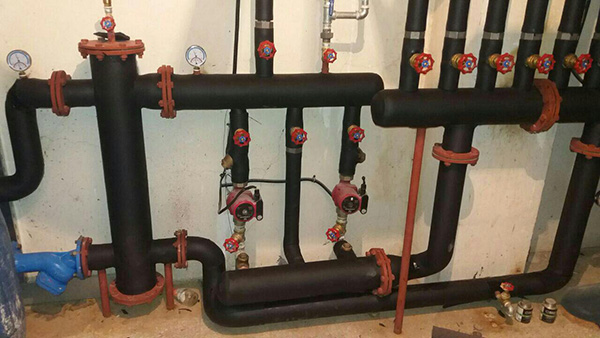 |
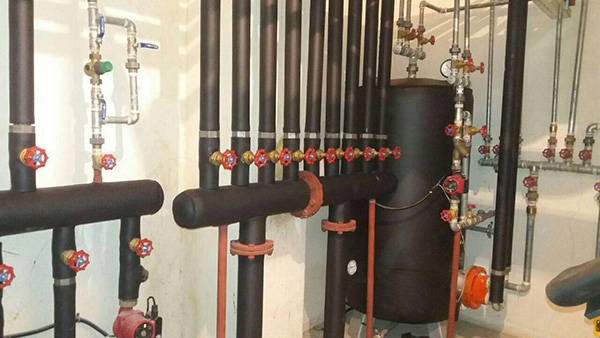 |
The price of Thermal Insulators
The price of thermal insulators varies greatly based on the types, material, and thickness of the insulator, you can buy all types of thermal insulation at the best price only at DamaTajhiz HVAC.
It should be noted that the prices presented in the DamaTajhiz HVAC collection are up-to-date, and the discounts desired by consumers have been included in these prices.
Thermal Insulator Installation Tips
In the implementation of insulation, the following points should be taken into account:
- The material and covering of the insulation must comply with the regulations specified in the Iranian National Building Code to protect that area of the building against fire.
- The use of combustible materials as insulation, insulation covers, and other auxiliary materials is prohibited.
- For pipes that are exposed to freezing temperatures, the insulation thickness must be selected based on precise engineering calculations, or alternative methods, other than insulation, should be used.
- The insulation thickness is determined based on engineering calculations, and it should be noted that a thicker insulation does not always result in a reduction in heat loss.
- In areas where, due to humidity in the surrounding air, there is a possibility of water condensation on the surface of the insulation, it is essential to use waterproof coverings on the insulation.
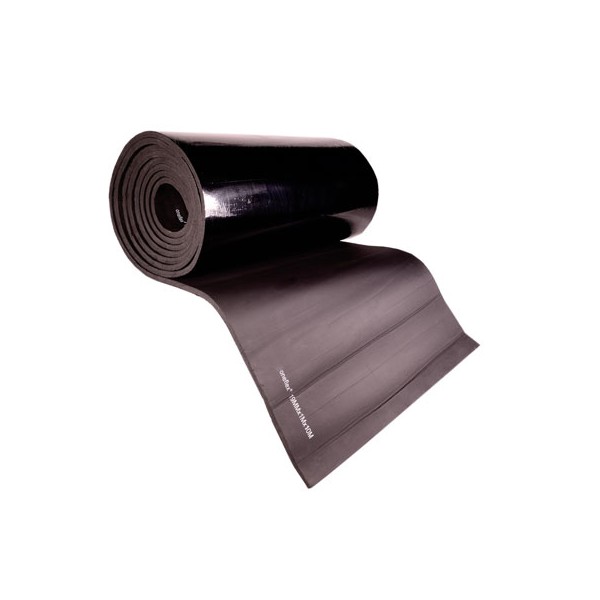
General Information on Types of Thermal and Cooling Insulations in Building Installations
To choose different types of thermal insulators for both cooling and heating equipment, you should pay attention to the ambient temperature as well as environmental conditions and even appropriate safety in different conditions.
One point that is very important in choosing thermal insulators is their economic value; to achieve maximum insulation with the minimum thickness of the insulator.
Mineral Wool Insulation
Mineral wool insulation is made by crushing the granules of slow-melting vulcanic stones. In addition to being non-flammable, these insulators are also heat and sound insulators, which are used in the form of flexible or uncoated light mats to insulate sloping roofs on the underlying plates.
Another notable feature of mineral wool insulation is to prevent the growth of fungus and mold and to be odorless and moisture-repellent.
Stone Wool Insulation
One of the most common thermal insulations available in the market is stone wool insulation, which is lighter than other thermal insulators and maintains its properties after drying.
One of the advantages of these insulations is their simple installation, which has made them popular as they are also compatible with all building materials.
Using them to make the building fire-resistant is one of the most important applications of this insulation. This coating can be used to protect metal structures, elevator shafts, electrical installations, escape corridors, etc.
Glass Wool Insulation
Glass wool insulation is formed by very thin fibers of glass strands that are almost connected and are bundled together after cooling down, they are placed on kraft paper, lead, bitumen, or fiber net.
Due to its non-flammability, glass wool is used to insulate sloping roofs on the sheets of the underlying coating and in flat roofs under the asphalt.
Note: Glass wool must be kept away from moisture as it absorbs water 4~8% of its weight.
Plastics Insulation
These insulations include all kinds of polymers, which, due to the diversity in the types of available plastics, have caused the diversity of this type of thermal insulation in the market.
For example, polystyrene, polyethylene, polyurethane, polyvinyl chloride, and EPDM (ethylene-propylene-diene-monomer) foam insulations are available with different characteristics and uses.
Foam Glass Insulation
Foam glass, using pure glass, expands up to twenty times its volume and turns into solid and spongy insulating plates. This insulation has good pressure resistance, and one of the important and practical features that has made it classified as thermal insulation is its fire-resistant ability.
Perlite Insulation
Perlite is a type of volcanic material that forms in humid areas. One of the characteristics of this material, that made it a good thermal insulator, is its inorganic nature, as it does not react with most acids and is also resistant to decay and termite attack.
Perlite has significant disadvantages that should be noted. The compressive strength of this insulation is low, so it should not be used in places under high pressure and humidity.
Also, due to the connection of its holes together, it is highly water absorbent, and its resistance decreases as it gets wet.
Fiberboard Insulation
This material is made by compressing felt wool and other plant fibers in the form of rigid boards that easily absorb moisture, become saturated, and lose their mechanical strength and stability against heat transfer.
This insulation also has a weak resistance to fire, which is why it is not a suitable option for use in building construction, but due to its low price and stable dimensions, along with the bottom coating of plastic insulation as a base for asphalt and felt coating in some Projects are used.
Cork Board Insulation
Corkboard insulators are produced by pressing the cotton seeds together with their natural gum and are very expensive.
This thermal insulation is resistant to moisture; that's why it has many fans in high humidity and moisture places and is used in different applications.
The remarkable thing about this insulation is its weak tensile strength, but instead, it has the same high compressive strength.
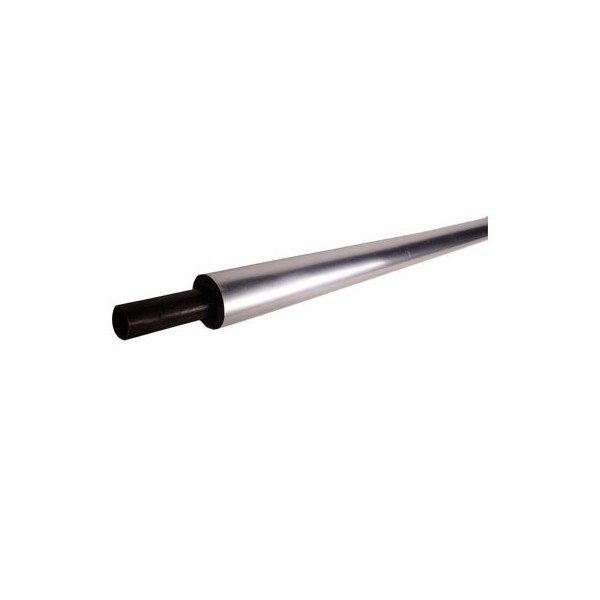
Characteristics and Applications of Different Thermal Insulations for Buildings
Here are some of the benefits of different types of thermal insulators:
Mineral Wool Insulation
-
- Fungi resistant
- Anti-moisture and non-absorbing odor
- Made from volcanic materials, slow melting, and high heat resistance
Stone Wool Insulation
-
- Heat and sound insulation.
- High absorption of water and humidity and preventing the growth of fungus or mold
- Very high thermal resistance, suitable for refinery power plants to insulate pipes and large tanks.
Glass Wool Insulation
-
- Heat and sound insulation
- Trapping air by fibers and preventing its transfer to the outside
- It has low weight and is of high importance for styling places
Plastic Insulation
-
- Style
- High Variety
- Easy installation
Foam Glass Insulation
-
- Non-combustive
- Environmentally friendly
- Good mechanical strength
- Chemically neutral
- Preventing the growth and penetration of harmful insects
- Dimensional stability in different environmental conditions
- Its performance does not drop at different times
Perlite Insulation
-
- Maintaining insulating property at high temperature
- Resistant to termite attack and decay
- Suitable for various industries due to poor conductivity, low hardness, and non-flammability
Fiberboard Insulation
-
- High mechanical strength
- High resistance to heat
Cork Board Insulation
-
- High ability to withstand pressure
- Resistance to abrasion and moisture
- Made from pressed cotton seeds
Thermal Insulator General Advantages
In most cases, thermal insulation is used in different industries, and each one has different applications. Thermal insulators reduce a large amount of energy consumption by maintaining the proper temperature in buildings.
Thermal insulators play an important role in this direction, and the important features of thermal insulation, the following can be mentioned:
- Long lifespan
- Right density
- High resistance to ultraviolet rays
- No deformation against heat and high heat
- Neutrality of insulators against chemicals
- Keeping the heat transfer coefficient constant and improving the thermal performance.
- It is necessary and mandatory to be resistant to germs and fungi
- High thermal insulation resistance against fire and ensuring the safety of residents
Review, Selection, and Pricing of HVAC Equipment
Dear User:
While thanking you for the trust you have in the technical opinions of DamaTajhiz HVAC sales experts, it should be noted that the determination and selection of the desired product brand based on history, brand strength, service, and product price is ultimately determined by the buyer.
But in the types of building thermal insulation, most users and buyers choose and buy best-selling brands according to their quality, price, and after-sales service.
If, after reading the above information, you need to ask questions to decide to purchase thermal insulation for the building, you can get advice from the heating equipment and engine room sales experts after contacting DamaTajhiz HVAC Group and extension numbers 117-121-122.
"Knowledge Fuels Better Choices"
Registered Trademark and Stewardship Business Licenses Issued by the Union of Virtual Business Association and the HVAC Equipment Industry.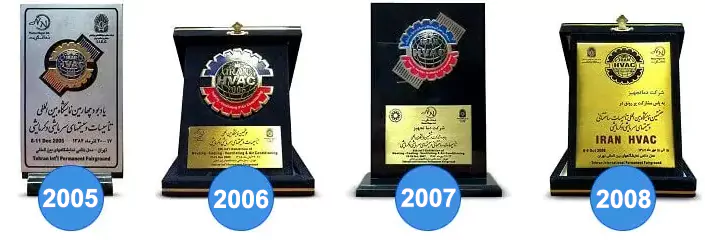
DamaTajhiz HVAC Participation at International HVAC and Construction Facilities Exhibitions Demonstrates its Global Reach and Commitment to the Industry.
We Look Forward to Your Call and the Opportunity to Meet With You
SHARE THIS CONTENT TO SPREAD THE KNOWLEDGE
| |
Head Office: No. 463,Talebian Alley,Taleghani St.Tehran,Iran


DamaTajhiz has provided the opportunity to sell and ship specialized HVAC equipment for applicants in the following countries as the first and the most popular online store for selling HVAC equipment (Heating , Ventilation , Cooling , Air conditioning) in the Middle East : Afghanistan – Tajikistan - Uzbekistan – Turkmenistan – Azerbaijan – Armenia – Georgia – Turkey – Iraq – Syria – Jordan – Kuwait – Emirates – Qatar – Oman.




